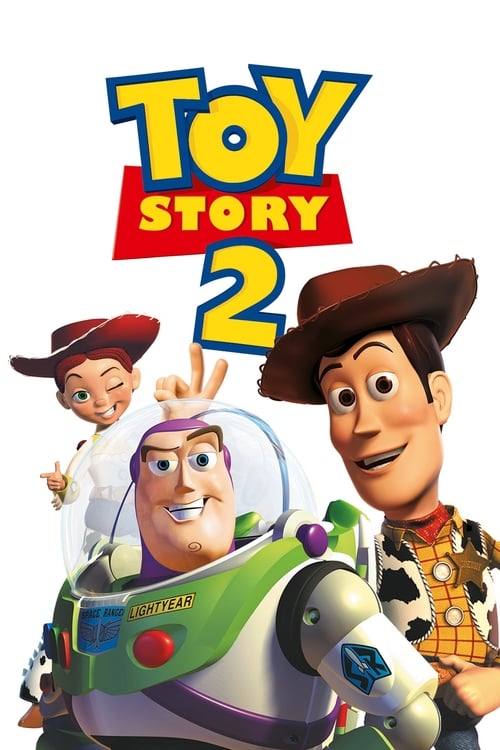
Title: Toy Story 2
Year: 1999
Director: John Lasseter
Writer: Chris Webb
Cast: Tom Hanks (Woody (voice)),
Tim Allen (Buzz Lightyear (voice)),
Joan Cusack (Jessie (voice)),
Kelsey Grammer (Prospector (voice)),
Don Rickles (Mr. Potato Head (voice)),
Runtime: 92 min.
Synopsis: Andy heads off to Cowboy Camp, leaving his toys to their own devices. Things shift into high gear when an obsessive toy collector named Al McWhiggen, owner of Al's Toy Barn kidnaps Woody. Andy's toys mount a daring rescue mission, Buzz Lightyear meets his match and Woody has to decide where he and his heart truly belong.
Rating: 7.598/10
The Heartstrings of a Toy Chest: Unpacking *Toy Story 2*’s Emotional Craft
/10
Posted on July 17, 2025
Toy Story 2 (1999), directed by John Lasseter with co-directors Lee Unkrich and Ash Brannon, elevates the animated sequel into a poignant meditation on loyalty, obsolescence, and the fleeting nature of childhood. Where its predecessor charmed with novelty, this film deepens the emotional stakes, weaving a narrative that resonates as much with adults as with its younger audience. The screenplay, credited to a team including Andrew Stanton and Rita Hsiao, is a masterclass in balancing humor, adventure, and existential weight. It centers on Woody (voiced with earnest warmth by Tom Hanks), whose abduction by a toy collector forces him to confront his purpose as a toy destined to be outgrown. The introduction of Jessie (Joan Cusack) and the Wheezy subplot amplify this theme, exploring abandonment with a tenderness that avoids sentimentality.
The film’s emotional core hinges on its screenplay, which deftly interweaves comedic set pieces like Buzz Lightyear’s (Tim Allen) quixotic rescue mission with moments of raw vulnerability. Jessie’s backstory, revealed through a haunting montage set to Randy Newman’s “When She Loved Me,” is a narrative triumph. Sarah McLachlan’s vocals and the sparse, evocative animation create a sequence that lingers, capturing the ache of being forgotten without preaching. This moment exemplifies Pixar’s ability to trust its audience with complex emotions, a rarity in family films of the era.
Visually, Toy Story 2 refines the original’s groundbreaking CGI. The animation, while dated by today’s standards, brims with personality every scuff on Woody’s boots or glint in Buzz’s visor feels deliberate, enhancing character depth. The settings, from Al’s Toy Barn to the sterile museum, contrast the warmth of Andy’s room, reinforcing the film’s themes of belonging versus display. However, the pacing occasionally falters; the airport chase sequence, though thrilling, feels protracted, diluting the urgency of Woody’s decision. Additionally, some secondary characters, like Slinky Dog, are underutilized, their roles reduced to comic relief.
Newman’s score, beyond the standout song, underscores the film’s emotional shifts with subtle precision, blending playful motifs with melancholic undertones. The voice acting, particularly Cusack’s spirited yet fragile Jessie, grounds the fantastical in human truth. Toy Story 2 isn’t flawless, but its ambition to explore impermanence within a vibrant, toy-filled world makes it a sequel that surpasses its origin, inviting reflection on what it means to love and let go.
0
0
